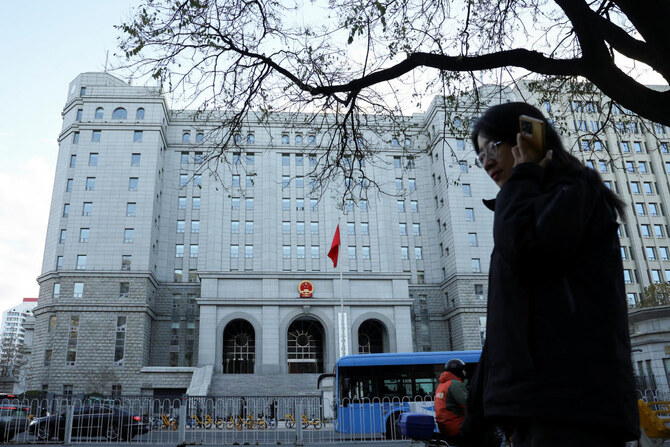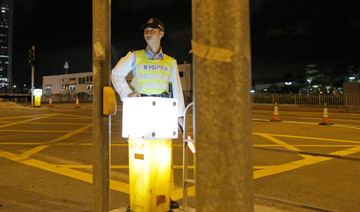PROVIDENCE, R.I.: Tesla CEO Elon Musk’s great Twitter turnabout — in which he disclosed his massive stake in the social media company, got a seat on its board, publicly floated drastic changes and then turned down the board role — all happened in a week.
But its aftermath could linger if the mercurial billionaire who now holds a roughly 9 percent stake in Twitter continues to push forward his ideas for reshaping the business of social media.
Why didn’t Musk join the board?
Musk said he informed Twitter on Saturday that he wouldn’t be joining its board of directors, after being invited five days earlier, according to a financial disclosure. He didn’t explain why but the Saturday decision coincided with a barrage of now-deleted tweets from Musk proposing major changes to the company, such as dropping ads — its chief source of revenue — and transforming its San Francisco headquarters into a homeless shelter. Musk left a few clues on Twitter about his thinking, such as by “liking” a tweet that summarized the events as Musk going from “largest shareholder for Free Speech” to being “told to play nice and not speak freely.”
What is Twitter saying?
Twitter CEO Parag Agrawal said Musk’s not joining was “for the best” but didn’t give explicit reasons in a statement Monday. Agrawal also left some clues, noting that Musk had been awaiting a background check and suggesting that Twitter wanted him on the board — rather than just as a major shareholder — because as a fiduciary he’d be legally and ethically bound to act “in the best interests of the company and all of our shareholders.”
How did Musk build his stake?
Musk has been tweeting for a long time, but he began buying Twitter stock in earnest only a few months ago. He started on Jan. 31, when he bought a little more than 620,000 shares at $36.83 apiece. On nearly every single trading day from then through April 1, he bought hundreds of thousands or millions more of shares.
Altogether, Musk was in control of 73.1 million Twitter shares as of the most recent count, or 9.1 percent of the company. He spent $2.64 billion buying them all on the open market. The market value for all of Twitter, including Musk’s stake, is roughly $38 billion.
How big is Musk’s stake compared with others?
Musk seemed to be Twitter’s biggest shareholder until investment giant Vanguard Group filed a report late last week showing it had supplanted him.
Vanguard controls 10.3 percent of the company through investments made by its suite of mutual funds and ETFs. Vanguard and other fund giants are often the biggest investors in any company, as money keeps pouring into their index funds from retirement savers and other investors. But these fund giants are typically much more hands-off as owners than activist investors, who can push for new management teams or big changes in strategy.
What couldn’t Musk do if he had joined the board?
Had Musk joined the board, he’d have been only one of several voices in strategy discussions. And he might have chafed at not being able to order the company around.
“The responsibility of the board of directors is to represent the shareholders,” said Harry Kraemer, clinical professor at Northwestern University’s Kellogg School of Management and former chairman and CEO of Baxter International. “They’re not there to represent themselves.”
By turning down a seat on Twitter’s board, Musk also gets out of a promise to keep his ownership stake of Twitter at 14.9 percent or below. Free of that cap, he has the option to build a bigger stake, where he could try to take over the company or help elect a slate of directors more aligned with his thinking.
“That 15 percent is an arbitrary number,” said Kraemer. “It’s not like if you own 15 percent, you can or can’t do something else. I’m speculating, but maybe the thought was: If we bring him on as a director, and he can’t buy more than 15 percent, that literally stops him from taking control of the company.”
Didn’t Musk say he would be just a ‘passive’ investor in Twitter?
When Musk first unveiled his Twitter stake through a filing with the US Securities and Exchange Commission, he did it with a type of form often used by investors who don’t plan to push for big changes at a company. But he has since amended that filing to use a broader type of form, one that doesn’t have the same restrictions.
What has Musk said he’ll do with his shares?
He said in a filing with regulators on Monday that he owns the shares for “investment purposes.” He said he may buy more, sell or simply hold the shares, depending on what happens with its price and other factors.
He also said that he may talk with Twitter’s board and its management team from time to time about strategy, as well as possible mergers, sales or acquisitions, among other things. The widely followed tweeter was sure to note that he may express his views to the company “through social media or other channels.”
Musk said he has “no present plans or intentions,” but that his plans could change at any time.
What does Musk really want?
Much of Musk’s vocal criticism of Twitter over recent weeks has centered around his belief that it falls short on free speech principles. The social media platform has angered followers of Donald Trump and other far-right political figures who’ve had their accounts suspended for violating its content standards on violence, hate or harmful misinformation. Musk also has a history of his own tweets causing legal problems.
But as long as his attention is sustained, it’s unlikely that Musk would make such a big play for Twitter if he didn’t also have strategic business interests, said Enrique Abeyta, a former hedge fund manager and editor of Empire Financial Research. It’s nearly impossible to start a new social media platform, so Twitter offers the digital equivalent of prime beachfront real estate that just needs some tinkering and fresh ideas, which could range from taking it private to shifting to a subscription-based model with fewer speech restrictions, Abeyta said.
“He clearly has shown an interest in combining his philosophical beliefs and interests with his economic ones,” he said. “I think it would be very dangerous to discount him.”
Could Musk be Twitter CEO?
Probably not. Neither Musk — who already serves as CEO of Tesla and SpaceX and has dabbled in a number of other technology ventures — nor most investors are likely to think that’s a good idea.
“He’d rather be the chairman, the spirit animal, the man who saved Twitter and also made $10 billion on it,” Abeyta said. “He’s the richest person in the world. Being CEO sucks.”




























